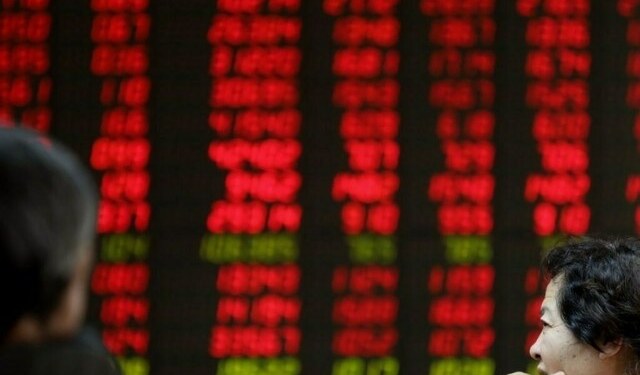ISTANBUL: The Turkish lira firmed against the dollar in volatile trade on Tuesday amid uncertainty over economic policy under a new government due to be formed following President Tayyip Erdogan’s victory in Sunday’s election.
Erdogan, who has now assumed sweeping new powers under a revised constitution that came into effect after the election, took 52.6 percent of the vote in the presidential race, with almost all votes counted.
His AK Party took 42.5 percent in the parliamentary election and its nationalist allies beat expectations with 11.1 percent, giving their alliance a legislative majority. Erdogan is expected to unveil his new government in July.
“The economy team has not yet been announced. It is important that the right staff be employed and also whether rational policies will be followed,” said Seda Yalcinkaya Ozer, a research specialist at Integral Investment.
“While these uncertainties persist, the fluctuations in the market are normal.”
A spokesman for the AK Party said in an interview with state broadcaster TRT Haber that the new cabinet could include business people, as well as athletes, cultural figures and people who have lived abroad.
The lira stood at 4.6400 per dollar at 1411 GMT on Tuesday, compared with Monday’s close of 4.6825. It had weakened as far as 4.7160 earlier in the day.
STABILITY
The Turkish currency, which has lost some 18 percent of its value this year, firmed to as much as 4.5375 in early trade on Monday on hopes of greater political stability, but later surrendered its gains.
Investors have welcomed the prospect of a stable working relationship between the president and parliament, but have doubts over Erdogan’s commitment to deliver reforms and his willingness to tackle structural issues such as double-digit inflation and a widening current account deficit.
“Immediate priorities include undertaking measures to improve business confidence,” said Roger Kelly, the Lead Regional Economist at the European Bank for Reconstruction and Development (EBRD).
Such measures could include lifting Turkey’s state of emergency, introduced soon after a failed military coup in 2016, and addressing institutional capacity issues as well as ensuring the rule of law, Kelly said.
In the long-term, structural reforms to rebalance the economy away from excessive reliance on domestic consumption could help bring down the current account deficit, Kelly added.
Erdogan has said the state of emergency will be lifted after the election. But the deputy chairman of his AK Party’s alliance partner, the nationalist MHP, said on Tuesday it should stay in place longer as Turkey still faces security threats.
The 10-year benchmark bond yield stood at 16.90 percent, while the two-year yield was at 19.25.
Source: Brecorder


























